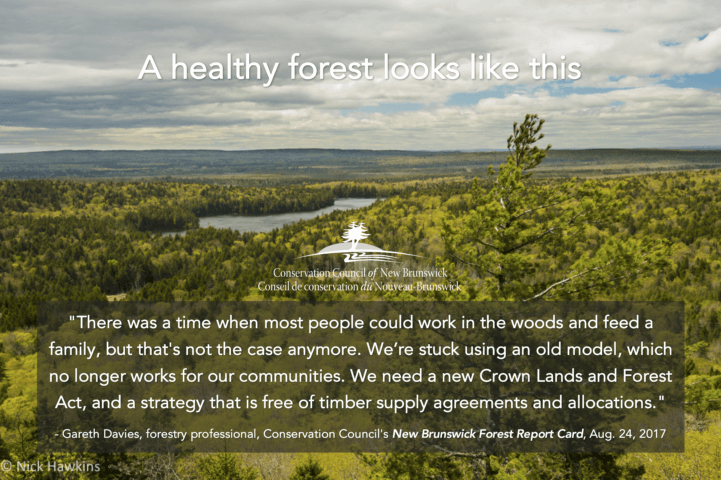Our Forest Campaign Director, Tracy Glynn, told the Canadian Press on Friday, Oct. 27 that New Brunswick should look at new models for managing our public forest in light of a new federal study investigating changes likely to occur in the Maritimes’ Acadian forest as a result of climate change.
The Natural Resources Canada study says climate change impacts in the Maritimes may change the composition of our natural Acadian forest and lead to a gradual reduction in the growth of softwood trees, such as spruce, pine and fir, in the latter half of this century.
The study, which you can read here, suggests the number of hardwood species, such as maple and oak, will increase because they fare better in warmer climates, but estimates there will be an overall decline in the size of the Acadian forest because the increase in hardwoods won’t make up for the loss of softwoods.
In the article, published by The Chronicle Herald and CBC, Glynn said that the mid-century decline of softwoods points to the need for New Brunswick and the other Acadian forest regions to consider adapting to forests that will eventually have more hardwoods.
“We can start by ending the spraying of planted clearcuts that wipe out hardwoods in favour of softwood plantations: a call that has been growing momentum in the province recently, with over 35,000 people signing a petition to end glyphosate spraying in the woods,” Glynn said.
“In a future of climate change, we need to look at non-softwood products and make sure that we manage them in a sustainable way that protects a healthy forest.”
Recommended links:

